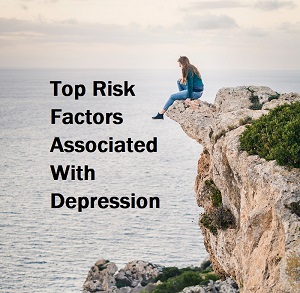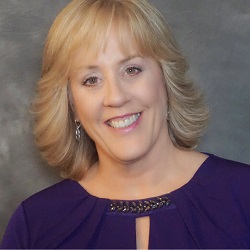Millions of people have depression. Depression is a significant contributor to disability and can lead to suicide if left untreated. Depression is different than the usual ups and downs that everyone goes through from time to time. It is a serious health condition that can affect a person’s relationships, work and health. Fortunately, Roseville counseling can help you overcome depression. (1)
Depression is not just a case of the blues. It isn’t something that you merely overcome with sheer willpower. Depression is a mood disorder that causes a loss of interest in usual activities and persistent feelings of sadness. This mental disorder affects how a person thinks, behaves and feels. People with depression may have difficulty doing normal day-to-day activities. They might also have persistent feelings of guilt and hopelessness and thoughts of suicide.
Anyone can get depression. No one is immune. All ages, races and genders are affected by this serious mental disorder. However, experts have discovered that specific factors may increase the likelihood of developing depression. (2) Knowing these risk factors can help you get treatment sooner.
Gender
Women are twice as likely to be diagnosed with depression than men. Health experts believe that hormones play a role in the gender gap in depression rates. It is hypothesized that changes in progesterone, estrogen and other hormones that take place during a woman’s menstrual cycle cause disruptions in the function of brain chemicals that control mood. Although hormones are not entirely responsible for the gender gap in depression. Cultural stressors and life circumstances may play a role too. Women are more likely than men to live in poverty. They are also more likely to work outside the home and be responsible for the majority of housework at home too. These stressors could contribute to increased rates of depression in women. (3)
Substance Abuse
There is a strong connection between substance abuse disorders and depression. These two disorders often go hand-in-hand. What is less clear is whether depression causes substance abuse or substance abuse causes depression. (4) It could be that drugs and alcohol cause changes in the brain that lead to depression or that people with depression self-medicate with alcohol and drugs. Regardless of the cause, substance abuse is a risk factor for depression.
Genetics
Depression does run in families. Twin studies suggest that there is probably a genetic component to depression. When one twin has depression, there is a 70 percent chance that the other twin will develop depression as well at some point in their lives. (5)
Stressful Events
Stressful life events, like loss and trauma, may contribute to depression. The hormone cortisol is released during periods of stress. Scientists hypothesize that high levels of this hormone affect the neurotransmitters that regulate mood, thus triggering depression. (6)
How To Get Help For Depression
The signs of clinical depression include:
-
Frequent sadness, irritability or agitation
-
Social isolation and withdrawal
-
Loss of appetite or changes in appetite
-
Insomnia or sleeping too much
-
Feelings of guilt or hopelessness
-
Problems in relationships
-
Physical problems for which there is no medical cause
-
Self-harming behaviors
-
Frequent thoughts of death
-
Thoughts of suicide
If you have the above symptoms of depression, it is essential to get help — especially if you have one or more risk factors for depression. Relationship therapy can help you cope with the stressors related to depression like marital problems. Contact us today for Roseville counseling.
References:
-
Hölzel, Lars et al. Risk factors for chronic depression — A systematic review.
Journal of Affective Disorders , Volume 129 , Issue 1 , 1 – 13.
Dienes, K. A., Hazel, N. A., & Hammen, C. L. (2013). Cortisol Secretion in Depressed and At-Risk Adults. Psychoneuroendocrinology, 38(6), 927–940.
Nancy Ryan, LMFT
Nancy Ryan, LMFT specializes in working with individuals and couples who want deep, satisfying relationships with themselves and their partners. She works with couples who are ready to stop the destructive patterns and want to build the love, friendship and romance back into their partnership.
All the therapists at Relationship Therapy Center can help you with depression, substance abuse and couples counseling. Please call us for a free consultation today. 916-426-2757


